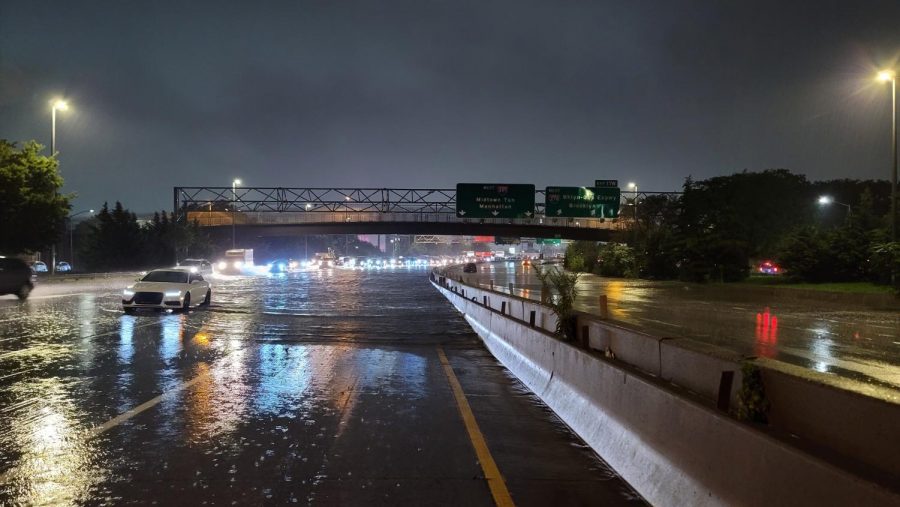Yan: Hurricane Ida should remind all that climate change is real
Tommy Gao, CC BY-SA 4.0, via Wikimedia Commons
Despite making landfall on the Gulf Coast, Hurricane Ida caused damage all the way to New York.
September 16, 2021
On Aug. 29, coincidentally on Hurricane Katrina’s 16th anniversary, Hurricane Ida made landfall in Louisiana as a Category 4 hurricane. Bringing torrential rain from Louisiana all the way up to New York, Ida is estimated to have caused $95 billion in damages.
Though some may dismiss Ida as a typical weather occurrence, it was abnormally extreme, and this is likely due to climate change. Ida jumped from a Category 1 to a Category 4 within a day as it crossed the 85-degree waters of the Gulf of Mexico.
Such unusually high ocean temperatures are strong sources for fueling tropical storms like Ida. With climate change intensifying over the years, higher ocean temperatures are inevitable and more likely to develop severe hurricanes that will devastate coasts and flood cities across the eastern U.S.
But the problem isn’t just about more intense hurricanes coming in the future. Rather, it’s the dismissiveness and lack of action states are taking to prepare for the strengthening weather. When Ida reached New York City, it brought significant amounts of rain over the area, drowning subway stations, buildings and roads. 13 people died t in the aftermath, yet neither the state nor the city gave evacuation plans. Were the after-effects of Hurricane Sandy not enough to give them a wake-up call years ago? We don’t have time to wait around and observe before making last-minute decisions for the people. We need to act quickly to inform people regarding ongoing situations. It’s always better to be safe than sorry.
Put simply, we need to have improved guidelines in place to prepare for the ever-changing severe weather concerns, and we need to know when to order people to evacuate. We need to have viable backup plans to make sure electricity and water access are still available after a strong storm. Especially in various Mississippi communities without up-to-date power technologies and water systems, we need to come up with short-term and long-term solutions to ensure everyone can access such necessities after a storm. No one should have to wait days or weeks to regain access to electricity or sanitary water.
To curb climate change’s effects, we need to hold ourselves, companies and countries accountable for being close to or fully carbon-free in the next 10 to 20 years. Climate change isn’t going to stop when just one person chooses to walk or ride a bicycle — this requires a collective effort that requires everyone to do their part in reducing their carbon footprint. If we don’t step up to find solutions to reduce the number of carbon emissions that end up in the atmosphere yearly, we’re going to be met with extreme, ever-intensifying weather scenarios, and I’m afraid we won’t adapt in time to such drastic changes. Let Ida be a reminder to all that we are in a climate emergency, and it won’t resolve or disappear if we don’t act now.









